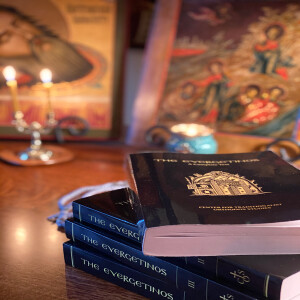

We continued with the incredible counsel of the Fathers about how one discerns when to embrace the advice and counsel of others, specifically one’s Elder. The first distinction made is about advice - counsel that is a part of the spiritual tradition as a whole and so valuable in and of itself. This should be embraced faithfully - for it is given by the goodness and kindness of one’s Elder. When that relationship has grown throughout the course of the years a command may be given by an Elder. This command, however, is only given under specific circumstances; never casually. One must have a kind of clarity and sense of commitment to what is being asked of the Elder. This is to be done by making a prostration, a bodily action and sign of obeisance showing one’s desire to take hold of the command of the Elder. The Elder, then, in an equally concrete fashion must give his blessing. In doing so he takes upon himself the commitment to pray and fast that the one in his care would be able to fulfill the command. We see in all of this the depth of the relationship that must exist between an Elder and the one in his charge. We do not simply expose ourselves to information, reading the writings of the Elders and applying them to our lives. Rather, we enter into a living tradition and it is in and through this relationship between an elder and the one in his care that spiritual growth is made. It is a relationship of love that mirrors the relationship that Christ has with each of us. He calls us to give ourselves to Him and follow Him and in doing so He gives us himself in the most holy Eucharist. The command always holds within it the grace to help us fulfill it.
---
Text of chat during the group:
More Episodes
All Episodes>>You may also like
Create Your Podcast In Minutes
- Full-featured podcast site
- Unlimited storage and bandwidth
- Comprehensive podcast stats
- Distribute to Apple Podcasts, Spotify, and more
- Make money with your podcast










